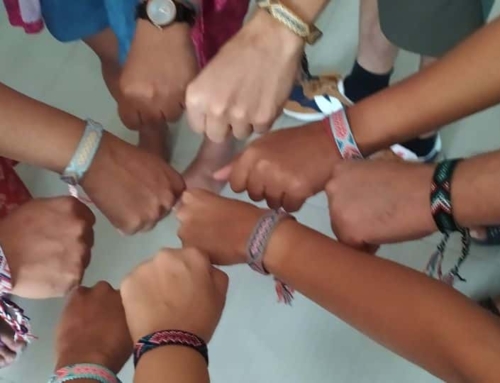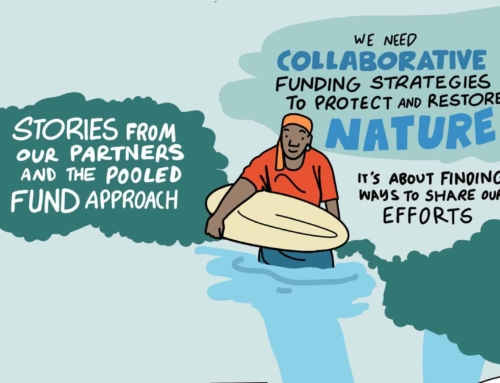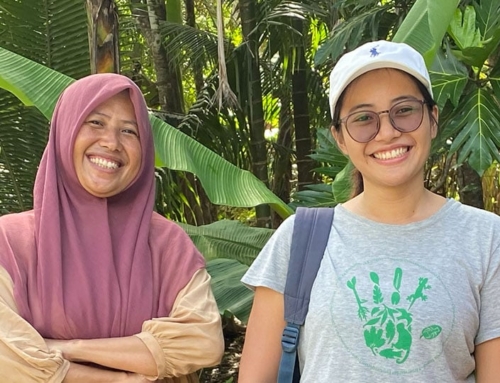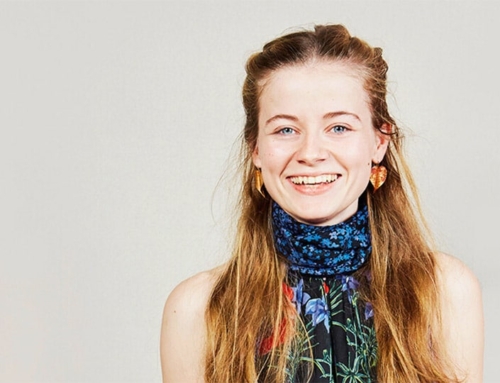As conservationists, we cherish biodiversity. We understand that an ecosystem is strongest, most resilient to change, and most likely to thrive when there is diversity of habitats, species, and genes. At Synchronicity Earth, our work extends to that of conserving biocultural diversity, knowing that where cultural diversity can flourish, so can biological diversity.
So, when we examine the UK environment sector and see the lack of diversity amongst the people working on resolving the environmental crises, it is also our responsibility to respond and fix the barriers that prevent the environment sector from being fully inclusive and representative of the communities it serves.
“Data is the starting point to change the current system.”
Vibhati Bhatia, Founder, South Asians For Sustainability, RACE Summit 2024
Many conservation projects begin with research. It is hard to understand the scale of a problem or what it might take to address it unless we have asked the right questions, of the right people, and use the answers to make a plan.
Although there are various ways in which the UK environment sector could become more inclusive (with barriers making it much harder for people from working class backgrounds and people with disabilities to access), the lack of racial equity has been the most discussed in recent years.
Momentum to address the under-representation of the global majority (people with African, Asian, Indigenous or Latin ancestry, who comprise approximately 85% of the global population) in the environment sector gained momentum after the Black Lives Matter movement triggered conversations about the history of racial inequality in the UK after July 2020.
At the time, the research often quoted was a 2017 paper by Policy Exchange entitled ‘The two sides of diversity: Which are the most ethnically diverse occupations?’ which found that 96.9% of environment professionals surveyed identified as White British, making it the second least ethnically diverse profession in the UK. This was a stark figure showing just how much work needed to be done, but as only a small part of a paper looking at diversity across 202 occupations, more questions needed to be asked.
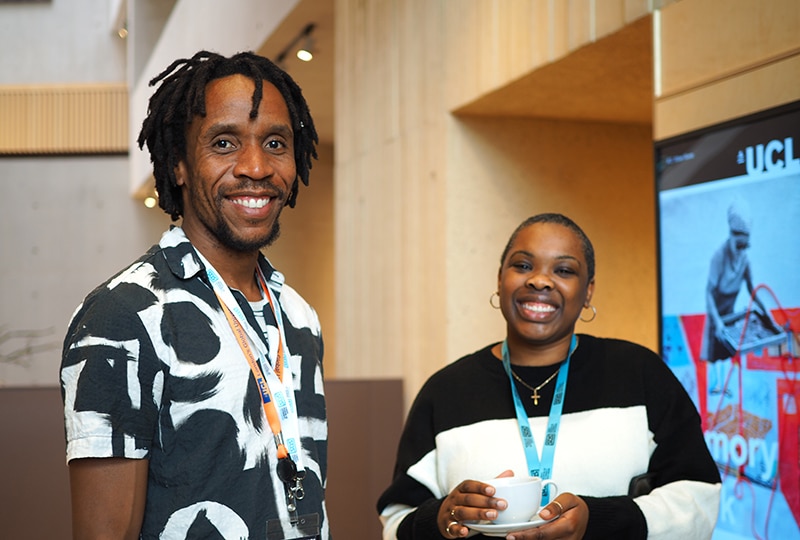
Manu Maunganidze, co-Director at SOS-UK. © Maar Dinu
Asking the right questions
The RACE Report, run by Students Organising for Sustainability UK (SOS-UK) calls for environmental organisations to annually submit anonymised race and ethnicity data for staff and governance bodies, as well as each organisation’s policy, strategy, and actions on diversity and inclusion. The first year data was collected (2022), 94 organisations took part, and the 2022 report found that 7% of staff overall identified as people of colour and racially/ethnically minoritised groups. The second year, 142 organisations took part, and the overall staff figure was 6%.
As well as submitting diversity data, Synchronicity Earth has supported this project with small grants from our Synchronicity Portfolio over both years. Due to this support, SOS-UK was able to mobilise a press campaign around the inaugural RACE Report and hold the Racial Action for the Climate Emergency: RACE Summit 2024 in July 2024.
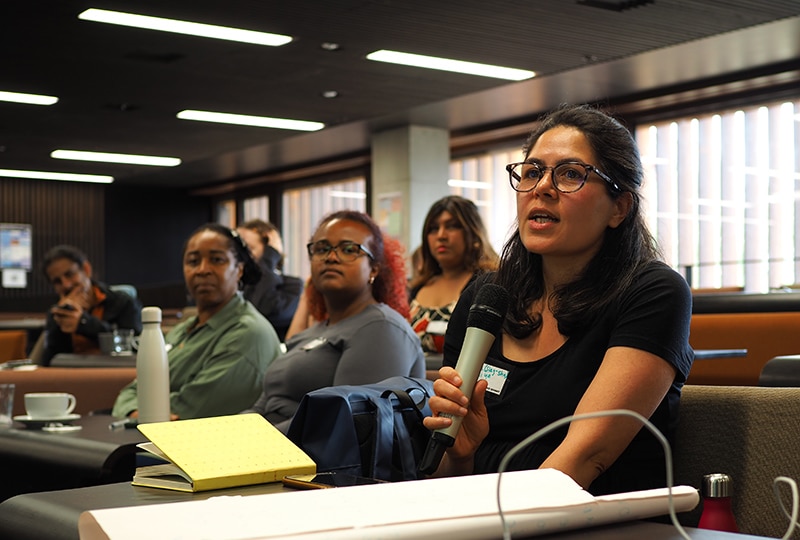
A breakout session discussing what constitutes a safe space, and what changes can we make to encourage a safe environment at work. Image © Maar Dinu
Diving deeper on diversity
The RACE Summit brought together 120 people from early-career environmentalists to executive leaders to discuss and consider how to make the environment sector more inclusive.
“It was a fantastic opportunity to review how far the sector has come in the last few years, reflecting on initiatives like the RACE Report and Route Map, while also looking forward to what else can be done, particularly by leaders in the sector,” says Nina Seale, Founder and former Chair of Synchronicity Earth’s EDI Working Group. “It was so rewarding to see a sold-out event with so much enthusiasm and willingness to listen and learn about how much more we can do.”
In addition to the ethnic diversity data produced in the RACE Report, SOS-UK have also established a biannual staff perceptions survey for organisations and the sector to understand how people experience working for a UK-based environmental organisation. Some of the insights included that people of colour and other ethnically minoritised groups were less likely to have received external training and development opportunities and more likely to have had to adapt to fit in with organisation culture.
Each participating organisation received the results for the survey from their team, providing leadership with valuable information on where they could improve on inclusivity. This, alongside the public transparency cards for each organisation (here is ours), will help organisations track their progress and remain accountable for their commitments to making the environment sector more equitable and diverse.

CEOs in the hot seat panel: (L-R) Larissa Kennedy (President, SOS-UK) questions Areeba Hamid (Joint Executive Director, Greenpeace), Richard Benwell (CEO, WCL) and Manu Maunganidze (Co-Director, SOS-UK). © Maar Dinu
Keeping the momentum
Initially modelled on the success of the Green 2.0 survey in the USA, SOS-UK announced at the RACE Summit that the project will now be expanding into Europe.
SOS-UK also continue to collaborate with Wildlife and Countryside Link (WCL), representing a network of 82 environment organisations in the UK. In addition to WCL’s Route Map towards greater ethnic diversity, WCL also holds the Raven Network, an independent support group for ethnically diverse people working across the environment sector.
The submission deadline for organisations to be part of The RACE Report this year is 11 October 2024. Organisations can express interest now to receive support on the process of submission and hear about further engagement opportunities. We look forward to seeing how this work continues to motivate action for a more inclusive environment sector.
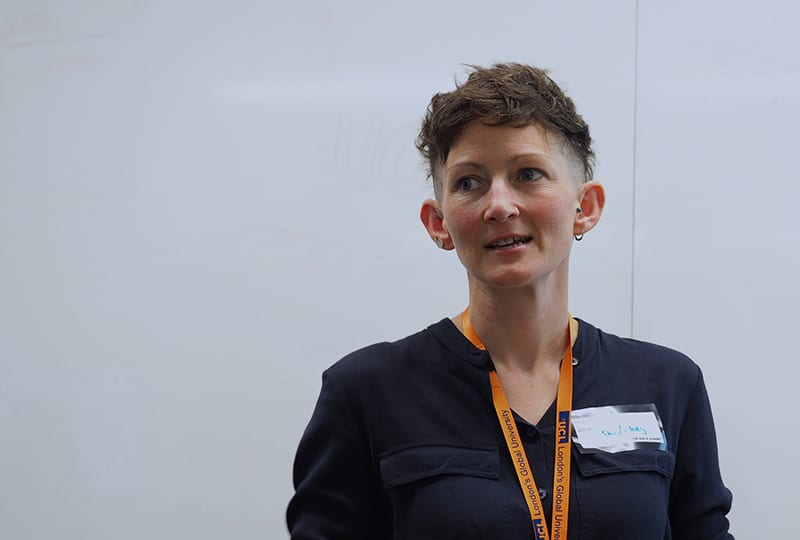
Meg Baker, co-Director at SOS-UK. The next stage of the RACE Report includes an expansion of the survey to European environmental organisations. Image © Maar Dinu
Synchronicity Earth has supported SOS-UK’s work on racial inequity in the UK environment sector as part of the ‘Broadening the base’ strand of the Synchronicity Portfolio with the aim to help create a more open, diverse, and inclusive movement to protect the natural world.
To find out more about the Synchronicity Portfolio and how you can support, please get in touch.

